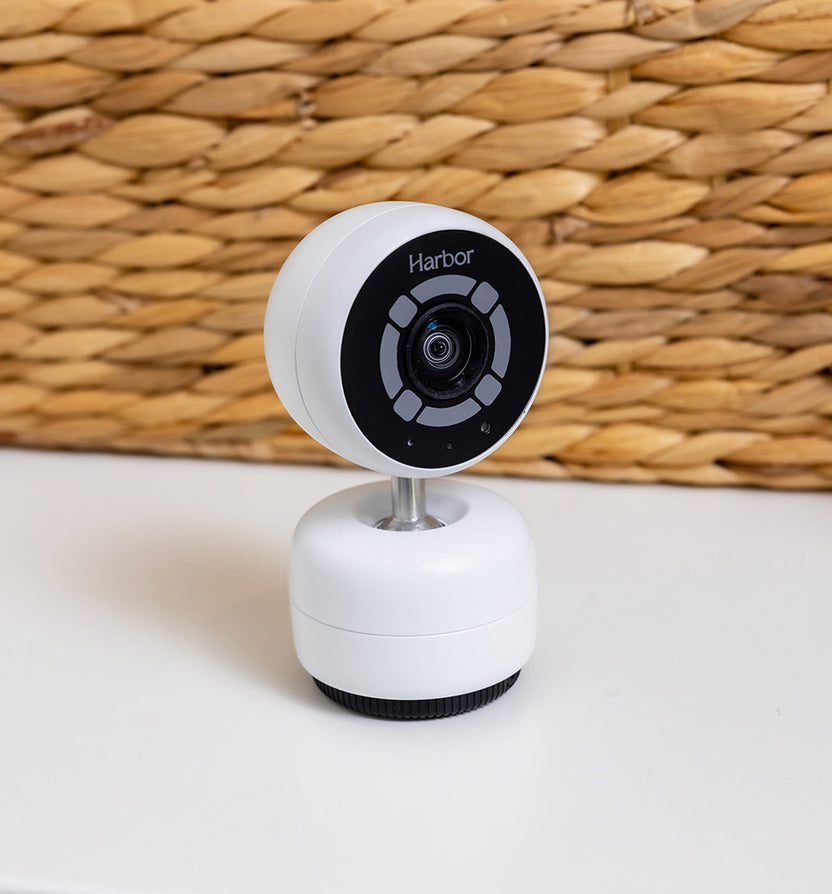
Written by Dr. Nicole Kumi, PhD, PMH-C, founder of The Whole Mom
Motherhood is often portrayed as a universally happy and most fulfilling experience. For many women, the reality is far more complicated. Alongside the joys of motherhood come its physical, emotional, and psychological challenges. For some, feelings of overwhelm can evolve into perinatal mood and anxiety disorders (PMADS), which affect one in seven mothers.
Despite their prevalence, there’s a lack of information and education about PMADs that leaves struggling mothers feeling isolated and afraid to ask for help. It doesn’t have to be that way, though. We’ll review the foundations of maternal mental health, signs and symptoms of PMADs, and demonstrate how asking for help can empower new moms on their journey of motherhood.
What are perinatal mood and anxiety disorders (PMADs)?
Perinatal mood and anxiety disorders is an umbrella term that includes a range of mental health conditions that affect women during pregnancy and up to one year postpartum. PMADs go beyond the “baby blues” that many women experience in the first few days after giving birth. The primary distinction between “baby blues” and “PMADs” is duration; if symptoms persist and intensify after two weeks, you’ll want to talk to your doctor.
PMADs include:
-
Postpartum depression (PPD): A form of depression that can occur after childbirth, marked by feelings of sadness, hopelessness, and a loss of interest in activities previously enjoyed.
-
Anxiety disorders: This can look like constant worry, panic attacks, or overwhelming fear about motherhood, health, or baby’s well-being.
-
Obsessive-compulsive disorder (OCD): This may manifest as intrusive thoughts, compulsive behaviors, or excessive concern about baby’s safety.
-
Post-traumatic stress disorder (PTSD): Some women may develop PTSD following a traumatic childbirth experience.
-
Bipolar disorder: Though less common, some women may experience manic or hypomanic episodes along with depressive symptoms.
What can perinatal mood and anxiety disorders look like?
Understanding what PMADs look like is key to being able to address them. While each postpartum experience will vary, here are eight common signs and symptoms:
1. Feelings of overwhelming sadness or hopelessness
This may look like feeling sad, crying without a clear reason, feeling emotionally numb, or feeling disconnected from baby or your partner.
2. Excessive worry or anxiety
Sometimes this looks like constant worry about baby’s health or your ability to care for them. Other times, it might show up as panic attacks, difficulty breathing, tightness in the chest, and difficulty relaxing or sleeping.
3. Intrusive thoughts
Thoughts about harming baby, oneself, or others can be distressing and don’t reflect a mother’s true desires or intentions. This can be common in postpartum OCD or anxiety.
4. Extreme fatigue or sleep disturbances
While new mothers can expect sleep disturbances due to baby’s needs, persistent insomnia or consistently feeling exhausted despite getting adequate rest could be signs of depression or anxiety. On the opposite end of the spectrum, oversleeping or struggling to get out of bed due to emotional exhaustion can be an indicator of depression.
5. Loss of interest in previously enjoyed activities
A sense of emotional numbness and disconnection from hobbies and loved ones, including the new baby, might suggest postpartum depression.
6. Physical symptoms
Headaches, stomach aches, and unexplained physical pain can all be linked to anxiety and depression. Keep an eye out for significant changes in appetite or weight, as eating too much and too little can be a sign of PMADs.
7. Feeling isolated or inadequate
Persistent feelings of not measuring up as a mother, feeling guilt or shame, or worrying about your ability to care for the baby can all be signs of postpartum anxiety. So, too, can feeling disconnected from people around you and isolating from social interactions.
8. Changes in bonding with baby
Feeling indifferent toward baby, struggling to bond, and fearing being a bad parent can all indicate PMADs.
Why are PMADs often overlooked?
Many mothers suffer in silence because they feel ashamed or embarrassed to speak up. The image of motherhood we’re typically met with—filled with smiles, ease, and happiness—can lead to feelings of guilt if a mother feels otherwise.
Healthcare professionals tend to focus more on a woman’s physical recovery after childbirth, skipping past mental and emotional concerns. It’s not uncommon for new mothers to put on a brave face, ultimately delaying the help they need.
When is it time to seek help?
The short answer is that it’s never a bad time to seek help. If you or someone you know is struggling and feels hesitant to find professional support, consider this: making the decision to find support is a powerful act of self-care for you and for baby. It takes strength to acknowledge that you’re struggling!
Ready to reach out but not sure where to start? Here are five possible pathways to care:
1. Talk to your healthcare provider
Reach out to your OB-GYN, midwife, or primary care doctor. They can screen you for PMADs and point you toward appropriate mental health care resources.
2. Consider therapy or coaching
You don’t need a doctor’s referral to find a coach or therapist! Cognitive-behavioral therapy (CBT) is an effective, short-term treatment for depression and anxiety, and there are plenty of therapists who specialize in perinatal mental health. Alternatively, perinatal transitional coaches can help new moms set goals and build a roadmap toward a happier, more fulfilled future.
3. Support groups and community
Connecting with other moms who might be going through something similar can reduce feelings of isolation and foster connection. Look for local in-person or online support groups that focus on maternal mental health.
4. Medication (when necessary)
In some cases, medications like antidepressants might be recommended by a healthcare professional. Always ask your provider about the benefits, risks, and potential side effects of medication—especially if you’re breastfeeding!
5. Self-care and rest
While keeping baby alive is your top priority, you need to rest, too. Ask for help and delegate baby duties to give yourself time to recover from childbirth. Nourish your body with healthy foods, stay hydrated, and get outside whenever possible. Gentle relaxation, like meditation and yoga, can help, too.
Let’s recap
Maternal mental health is just as important as physical health, yet it’s often overlooked or dismissed. If you are struggling with emotional or mental challenges during pregnancy or your first year postpartum, reach out for help. Accessing professional support can mark an important step toward healing and allows you to better care for yourself, baby, and your entire family.
Remember, you don’t have to do it alone. Seeking support is empowering. You’re doing an incredible job, and it is okay to need a little help along the way!
About Dr. Nicole Kumi
Dr. Nicole Kumi is the CEO and founder of The Whole Mom, a maternal wellness organization specializing in perinatal transitional coaching, assisting mothers with preparing their mental health as they transition from pregnancy into the fourth trimester. In 2018 Nicole found herself on the other side of the behavioral healthcare system, needing services after being diagnosed with Postpartum Depression, and it was during this time that she realized how little discussion there was around perinatal mood and anxiety disorders, as well as the challenges in finding the right type of services for what she was experiencing. Once she was able to improve her mental and emotional health,she shifted into the maternal mental health space, providing education, support, and information to moms about the mental health aspect of postpartum, in an effort to reduce the stigma of pmad’s, raise awareness, and empower moms to seek help. Nicole’s services range from 1:1 coaching, on demand courses, and virtual moms community to meet each mother where she is on her journey and allow her to effectively transition into her new role, and redefine herself as a mom.
Nicole has written and published two books about motherhood and mental health. Both are available on Amazon:
Follow Dr. Nicole Kumi on LinkedIn & Instagram. Plus, get the Fourth Trimester Blueprint email course free, here!
PMHC- From PSI in 2023, PhD in Advanced Studies in Human Behavior from Capella University 2017, PSI MD chapter board member




